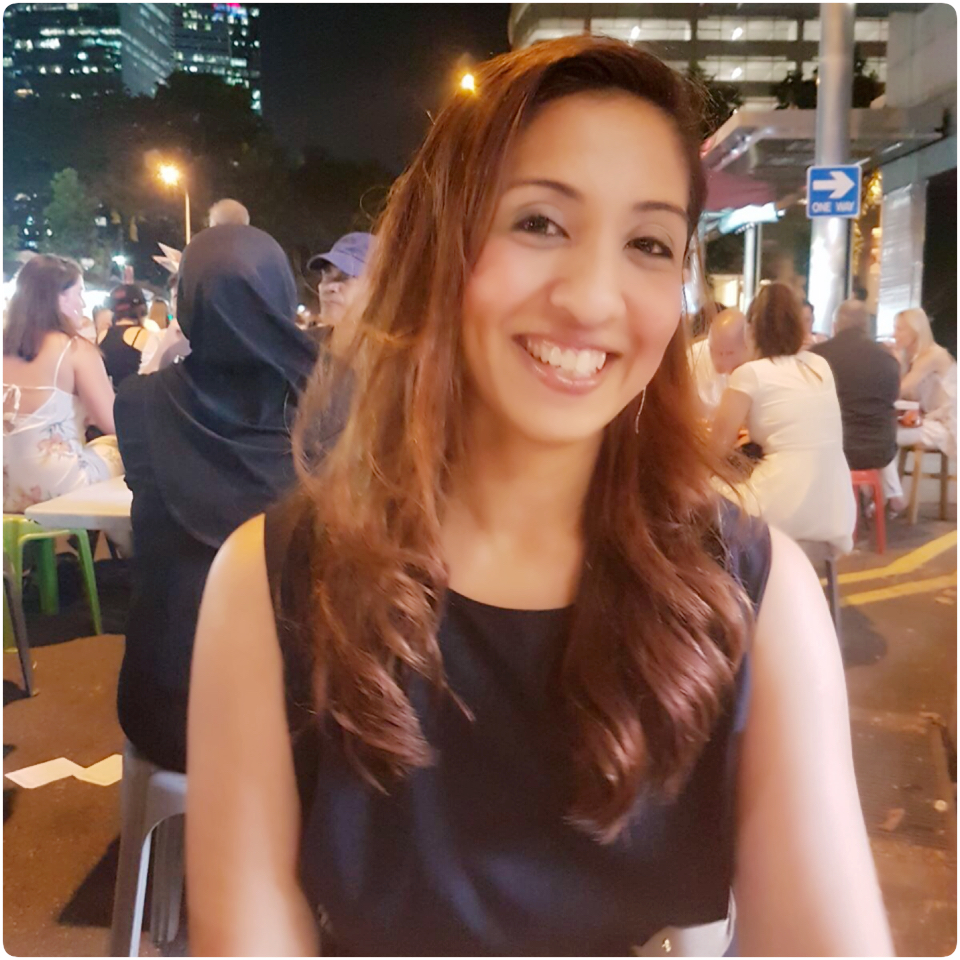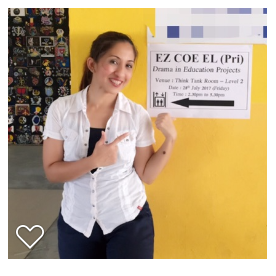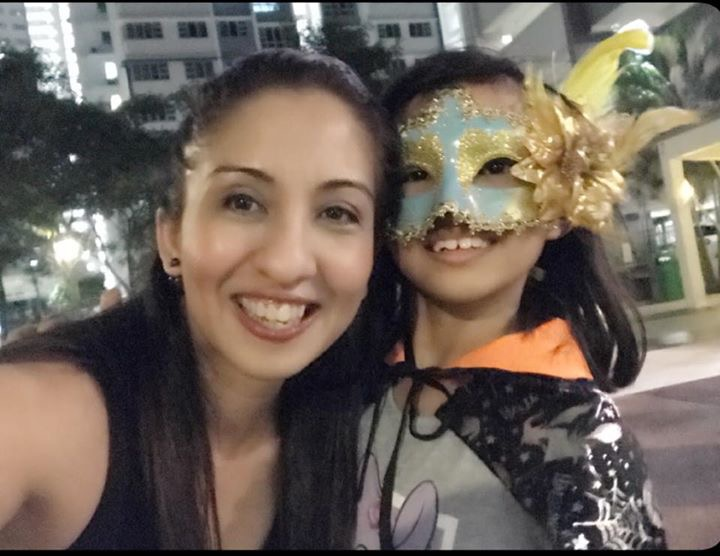SDEA Spotlight: Nazreen Osman
by SDEA

Nazreen has great passion for using drama as pedagogy in English Language (EL). Her participation as a research activist in 2007 has led her into implementing drama as pedagogy into the school-based curriculum. In 2012, she has published a drama publication featuring her work. Nazreen received a National Day Award, The Efficiency Medal in 2011 and an Associate Award in Academy of Singapore Teachers in 2013. Drama is a Learning for Life Programme (LLP) in Tampines Primary led by Nazreen and her drama committee members. Nazreen is currently the Lead Teacher in English Language in Tampines Primary School.
1. What are you working on at the moment?
I am currently working on 2 areas of collaboration; drama mentoring and forum theatre resource for education. Drama mentoring includes teachers from other schools who are interested in using drama as pedagogy. Forum theatre resource is a guide book which contain scripts of teachers and students exploring perspectives on social issues or issues in education. This will be a useful resource for EL: and CCE curriculum.
**
- What is the direction of your work and has it changed over the years now?**
My work has evolved from creating a scheme of work in drama in education to integrating it into a broader scope of English Language Syllabus. I was a Senior Teacher for Drama for a total of 6 years before moving to a different portfolio as a Lead Teacher in EL. I value the time spent developing drama in Tampines Primary for more than a decade now and seeing the students blossom in creativity in the arts. Being in the portfolio as a Lead Teacher, it’s been a fruitful one. I have to learn the ropes as much as I can to develop teachers’ competency in the different areas of focus; Speaking & Representing, Listening & Viewing, Reading & Viewing and Writing & Representing. The exciting part about this journey, is also the process of revisiting my conviction and personal beliefs in teaching and learning new methods in EL teaching as I travel down the road.
3. What is the dream project that you hope to do?
I hope to do a meaningful project in producing and directing children’s theatre in an international festival where social issues that matter to children are raised and children’s voices are heard. I would also like to produce more resource books in children’s theatre and how to use drama as a vehicle for developing creativity and critical thinking in a Singaporean classroom context.
4. How did you start out doing what you do?
I took up an Advanced Postgraduate Diploma course on drama in education and a Masters degree in Drama Education. I had the opportunity to introduce drama as pedagogy in a research in 2006. Following the research findings, drama was implemented in the school and it has expanded since. I was fortunate to have supportive school leaders since drama was implemented. Drama has its own committee and I enjoy working with my colleagues very much. Every year, we had the opportunity as a school to create theatre – Community Theatre. My first experience as artistic director began in 2012 during the first Community Theatre Production. Annually, there is group of teacher actors participating in theatre production and I am very energised with their presence and ideas. The devised play is always well-received. I’ve never fully understood collaborative leadership until I experienced theatre making as a team. It was an adrenalin rush!
5. How do you keep your work fresh?
I believe in building relationships from outside the inner circle. Being away from your comfort zone, taking risks and exploring beyond your area of work always keeps you growing and glowing. I enjoy watching other art forms besides theatre, I go to music concerts, art exhibitions to get different perspectives. Collaborating with different groups of people beyond school context also expands your horizons and thinking outside the box. The children will always keep my work fresh as their opinions change with the changing landscape around them and it is always interesting devising theatre with them.
6. What do you think makes a perfect drama educator?
A drama educator who can bring out the confidence in the child is a successful drama educator. There isn’t perfection in drama, the unorganised responses, the chaos is the ‘perfect’ combination of discovery and imagination. I admire good facilitation skills of a drama teacher who is able to build up the lesson based on a child’s responses and someone who can help to bring clarity to his/her viewpoint. We, the educators, are like their medium of transference, making their ideas exhibited clearly to the audience.
7. Why is drama important? Why should it be taught in schools?
Drama is life. Drama is putting yourself in other peoples’ shoes and we hear a lot about that. However, we are unable to put ourselves in other peoples' shoes if we don’t have the empathy or feelings and emotion. How do we pre-empt a scenario? We experience the situation and we require a sense of imagination. Through imagination, we develop thinking and knowledge. This is my belief, drama is a rehearsal for life and drama makes you see things differently. As Einstein says, “Imagination is more important than knowledge.”
Drama should be taught in schools because it is the future. This is the vehicle preparing them for their future to live and work in a world where change is a constant. The children must think on their feet and work in teams. Drama helps the children learn knowledge and skills that are transferrable to a variety of real-life contexts. It is the best platform, a safe environment for students to learn about human relationships and problem solving. Nowadays, language is not just about the rules of grammar but about learning in context, and drama does that. It provides a meaningful context for learning.
8. Who is the drama educator that has the most impact on you?
Dorothy Heathcote has the most impact on me. The way Dorothy developed process drama and her ideas have resonated within me. I used many of her principles when I first developed drama in curriculum in my school. I admire the way she had built on children’s responses and asked specific questions which exhibited their thinking.
**
- What is your most memorable moment in the classroom or on stage?**
I have many memorable drama moments. One of the sweetest moments was when one of my alumni members came back to help in Community Theatre production when one of the stage crew members fell ill. He stayed with me throughout the rehearsals and assisted me in the production. My theatrics alumni members also came back to help after they have finished their exams and contributed in every way they can. They were the motivators, supporters and cheerleaders of the junior theatrics members in the Community Theatre production. We are all like family. I am proud of all my alumni members. Many of them have pursued theatre locally and abroad.
10. Share a drama activity that you like to do.
I would say that teacher-in-role is my all-time favourite because I get to play and act with my students. I love performing too so this is a great opportunity for the students to see a different side of me.
11. What do you hope to see in Singapore’s drama /theatre landscape?
I would love to see more theatre for children aged 10 – 12 where they can give their views on topics with current affairs infused or even on personal development issues. The children’s voice must be heard. Many plays feature adults playing the role of characters from storybooks in children’s plays. This is entertaining for children too. However, there must be other platforms where children act in the play they have created. My observation over the years is that there is a growing number of children nurturing their talent in theatre. The children’s theatre festival that I’d like to see in future is not about showcasing plays but a play that is curated over months with topics ranging from bullying, broken family relationships and stress.
12. In one word, sum up your drama education journey.
CONSTELLATION.



